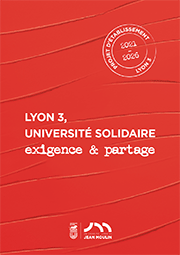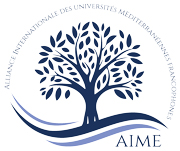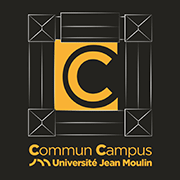AccueilRechercheProgrammes et productions scientifiquesThèsesThèses soutenuesThèses soutenues - 2006-2021Thèses soutenues - 2011
-
Partager cette page
- Recherche,
DANET Laurent
La bataille décisive
Publié le 3 janvier 2012 – Mis à jour le 3 janvier 2012
Thèse en Sciences Politiques Soutenue le 14 décembre 2011
La bataille décisive est une notion vague mais immédiatement intelligible par tout un chacun. Elle fonctionne à la manière d’un comprimé idéologique. Son utilisation discursive renvoie à l’imagerie populaire des exploits de grands capitaines, ou à des points chauds de rencontre entre armées titanesques, aux visages innombrables tendus par la conscience de jouer la survie de son roi ou de sa nation. La bataille décisive reste également chez les auteurs spécialisés une notion communément admise mêlant concentration géographique et accélération historique, la raison d’être de la guerre.
Mais si l’on considère que les belligérants, en l’occurrence les collectivités politiques, procèdent d’uns substance psychique et non plus d’une simple structure sociale, la notion de bataille décisive prend une autre profondeur. L’être psychique collectif acquiert en effet un patrimoine archétypal absent de la politie vue comme un acteur purement rationnel. L’empirisme historique et un certain nombre d’auteurs philosophes, psychologues et anthropologues, montrent que ces archétypes seraient les pôles animus et anima siégeant dans l’inconscient collectif. Les formes politiques des collectivités exprimeraient directement ces archétypes, habituellement dilués en chacun de nous par l’écran de l’inconscient individuel. A chaque forme politique, clan, tribu, nation, correspondrait une relation spécifique entre les deux pôles.
Les avatars historiques du Père Totémique freudien sont le chef, le roi, Dieu-le-Père, etc. Contre lui, les avatars de la Déesse-Mère matricielle se décantent en territoire, sanctuaire, Mère-Patrie, etc. C’est lorsqu’il y a correspondance géographique entre deux avatars, en l’occurrence lorsque le pouvoir homogène du chef correspond d’une manière nette au territoire collectif matriciel, les murs de la Cité ou les frontières de l’Etat, par exemple, que le bataille décisive apparaît à la pointe de la théorie et de la pratique.
Cette perspective pourrait projeter une lumière nouvelle sur les relations internationales. Le recours à la bataille décisive marque l’intention fébrile d’annihiler définitivement l’ennemi afin de maintenir la pureté de sa matrice maternelle, originelle et performatrice. Cette angoisse de la souillure du viol, certes spatial mais également culturel, dénote le caractère sexuel collectif de la guerre, en ce sens que la guerre serait la pratique sexuelle des collectivités politiques. Cette pratique anthropologique s’avère plus profonde que la guerre elle-même. Le paroxysme de la crise internationale remplace actuellement la bataille décisive de la guerre, et corrobore en effet l’idée de pilotes archétypaux clandestins, sans que ces derniers ne soient cependant déterministes et fatals.
The decisive battle is a vague but at once understandable notion by everyone. It works in the style of an ideological tablet. Its discursive use sends back to the popular imaging of the exploits of big captains, or to the trouble spots of meeting between titanic armies, to the uncountable faces tightened by the consciousness to play the survival of his king or its nation. The decisive battle also stays at the specialized author’s a notion collectively admitted mixing geographical concentration and historic acceleration, the reason for being of the war.
But if we consider that belligerent parties, in this particular case the political communities, proceed of some psychic substance and either of a simple social order, the notion of decisive battle takes another depth. The psychic collective being indeed acquires an archetypal heritage absent in the politie seen as a purely rational actor. The historic empiricism and certain number of philosophers, psychologists and anthropologists authors, show that these archetypes would be the animus and anima poles sitting in the collective unconscious. The political forms of communities would express directly these archetypes, usually diluted in each of us with the screen of the individual unconscious. In every political shape, clan, tribe, nation, would correspond a specific relation between both poles.
The historic adversities of Freudian Father Totemic are the chief, the king, God-the-Father, etc. Against him, the adversities of the matrix Goddness-Mother settle on territory, sanctuary, Mother-homeland, etc. It’s when there is geographical correspondence between two adversities, in this particular case when the homogeneous power of the chief corresponds in a clear way to the matrix collective territory, the walls of the City, or the borders of the State, for example, when decisive battle appears in the forefront of the theory and of the practice.
This prospect could throw a new light on the international relations. The appeal to the decisive battle marks the feverish intention to annul definitively the enemy to maintain the purity of its maternal, original and performatrice matrix. This anxiety of the stain of the rape, certainly spatial but also cultural, denotes the collective sexual character of the war, in the sense that the war would be the sexual practice of the political communities. This anthropological practice turns out deeper than the war itself. The paroxysm of the international crisis replaces at present the decisive battle of the war, and indeed confirms the idea of secret archetypal drivers, without that these last ones are however determinist and fatal.
Mots-clés : Bataille décisive, relations internationales, guerre, crise internationale, inconscient collectif, politie, Léviathan, Macanthrope, système politique.
Key-words : Decisive battle, international relations, war, international crisis, collective unconscious, politie, Leviathan, Macanthrope, political system.
Directeur de thèse : Jean-Paul JOUBERT
Membres du jury :
Jean LECA, Professeur émérite, Institut d'Etudes Politiques
Jacques VIRET, Professeur, Ministère de la Défense
Jean-Paul JOUBERT, Professeur, Université Jean Moulin Lyon 3
Alain JOXE, Directeur d'études, Ecole des Hautes Etudes en Sciences Sociales
Président du jury : Jean LECA
Mention : Très Honorable
Equipe d'accueil : CLESID
Mais si l’on considère que les belligérants, en l’occurrence les collectivités politiques, procèdent d’uns substance psychique et non plus d’une simple structure sociale, la notion de bataille décisive prend une autre profondeur. L’être psychique collectif acquiert en effet un patrimoine archétypal absent de la politie vue comme un acteur purement rationnel. L’empirisme historique et un certain nombre d’auteurs philosophes, psychologues et anthropologues, montrent que ces archétypes seraient les pôles animus et anima siégeant dans l’inconscient collectif. Les formes politiques des collectivités exprimeraient directement ces archétypes, habituellement dilués en chacun de nous par l’écran de l’inconscient individuel. A chaque forme politique, clan, tribu, nation, correspondrait une relation spécifique entre les deux pôles.
Les avatars historiques du Père Totémique freudien sont le chef, le roi, Dieu-le-Père, etc. Contre lui, les avatars de la Déesse-Mère matricielle se décantent en territoire, sanctuaire, Mère-Patrie, etc. C’est lorsqu’il y a correspondance géographique entre deux avatars, en l’occurrence lorsque le pouvoir homogène du chef correspond d’une manière nette au territoire collectif matriciel, les murs de la Cité ou les frontières de l’Etat, par exemple, que le bataille décisive apparaît à la pointe de la théorie et de la pratique.
Cette perspective pourrait projeter une lumière nouvelle sur les relations internationales. Le recours à la bataille décisive marque l’intention fébrile d’annihiler définitivement l’ennemi afin de maintenir la pureté de sa matrice maternelle, originelle et performatrice. Cette angoisse de la souillure du viol, certes spatial mais également culturel, dénote le caractère sexuel collectif de la guerre, en ce sens que la guerre serait la pratique sexuelle des collectivités politiques. Cette pratique anthropologique s’avère plus profonde que la guerre elle-même. Le paroxysme de la crise internationale remplace actuellement la bataille décisive de la guerre, et corrobore en effet l’idée de pilotes archétypaux clandestins, sans que ces derniers ne soient cependant déterministes et fatals.
The decisive battle is a vague but at once understandable notion by everyone. It works in the style of an ideological tablet. Its discursive use sends back to the popular imaging of the exploits of big captains, or to the trouble spots of meeting between titanic armies, to the uncountable faces tightened by the consciousness to play the survival of his king or its nation. The decisive battle also stays at the specialized author’s a notion collectively admitted mixing geographical concentration and historic acceleration, the reason for being of the war.
But if we consider that belligerent parties, in this particular case the political communities, proceed of some psychic substance and either of a simple social order, the notion of decisive battle takes another depth. The psychic collective being indeed acquires an archetypal heritage absent in the politie seen as a purely rational actor. The historic empiricism and certain number of philosophers, psychologists and anthropologists authors, show that these archetypes would be the animus and anima poles sitting in the collective unconscious. The political forms of communities would express directly these archetypes, usually diluted in each of us with the screen of the individual unconscious. In every political shape, clan, tribe, nation, would correspond a specific relation between both poles.
The historic adversities of Freudian Father Totemic are the chief, the king, God-the-Father, etc. Against him, the adversities of the matrix Goddness-Mother settle on territory, sanctuary, Mother-homeland, etc. It’s when there is geographical correspondence between two adversities, in this particular case when the homogeneous power of the chief corresponds in a clear way to the matrix collective territory, the walls of the City, or the borders of the State, for example, when decisive battle appears in the forefront of the theory and of the practice.
This prospect could throw a new light on the international relations. The appeal to the decisive battle marks the feverish intention to annul definitively the enemy to maintain the purity of its maternal, original and performatrice matrix. This anxiety of the stain of the rape, certainly spatial but also cultural, denotes the collective sexual character of the war, in the sense that the war would be the sexual practice of the political communities. This anthropological practice turns out deeper than the war itself. The paroxysm of the international crisis replaces at present the decisive battle of the war, and indeed confirms the idea of secret archetypal drivers, without that these last ones are however determinist and fatal.
Mots-clés : Bataille décisive, relations internationales, guerre, crise internationale, inconscient collectif, politie, Léviathan, Macanthrope, système politique.
Key-words : Decisive battle, international relations, war, international crisis, collective unconscious, politie, Leviathan, Macanthrope, political system.
Directeur de thèse : Jean-Paul JOUBERT
Membres du jury :
Jean LECA, Professeur émérite, Institut d'Etudes Politiques
Jacques VIRET, Professeur, Ministère de la Défense
Jean-Paul JOUBERT, Professeur, Université Jean Moulin Lyon 3
Alain JOXE, Directeur d'études, Ecole des Hautes Etudes en Sciences Sociales
Président du jury : Jean LECA
Mention : Très Honorable
Equipe d'accueil : CLESID
Documentation
Mise à jour : 3 janvier 2012







